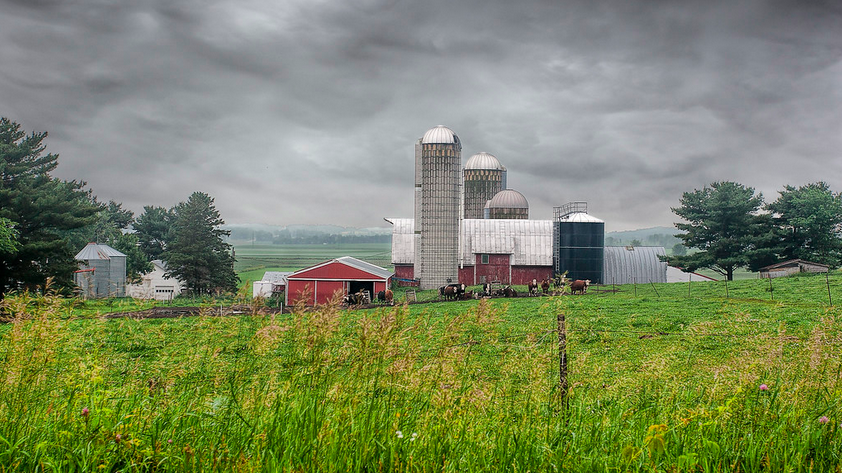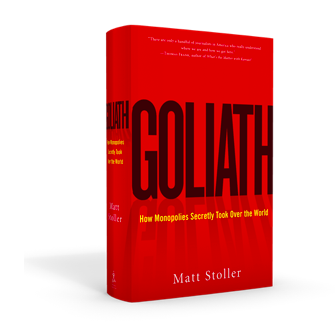Food & Power: Foreign-Owned Meatpacker Receives Trade War Bailout, Critics Say it Won’t Help Farmers

posted by Food & Power
Last week, several senators called onthe USDA to stop giving federal trade-related farm aid to foreign-owned corporations, particularly Brazil’s JBS, the largest meatpacker in the world. This follows a bill by Congresswoman Rosa DeLauro, D-Conn., that would require USDA’s Agricultural Marketing Service to only purchase foods from American companies, when available.
USDA has purchased over $64 millionworth of pork from JBS with funds intended to support farmers harmed by the administration’s trade wars.
In response to growing criticism, Secretary of Agriculture Sonny Perdueand trade organizations like the National Pork Producers Council argue that these contracts help American farmers and stabilize farm prices by absorbing excess product that, absent retaliatory tariffs, would have otherwise been purchased by consumers in China and other countries. So long as USDA purchases American farm products, it should not matter if the processor and seller is foreign-owned, they say.
But this debate around foreign corporations receiving federal contracts misses the larger question of whether or not these contracts will trickle down to farmers at all. Even if USDA purchases can keep consumer pork prices from falling, large, vertically-integrated meatpackers such as JBS have so much market power over their suppliers that they are unlikely to pay farmers more in response.
“We make these decisions under the auspices that the market will respond. There is no market,” says rancher Mike Callicrate. “Large packers simply dictate whatever price [to farmers] they can get away with.”
The Trump administration has promised a total of $28 billion in aid to compensate farmers for the business they lost after countries like China retaliated against tariffs Trump imposed on them. Most of these funds will go directly to farmers, but at least $1.4 billion has been earmarked to purchase foods that would have been exported.
Initially, Trump’s USDA granted Chinese-owned Smithfield a $240,000 trade-relief contract, which the corporation terminated after public blowback. In the meantime, Brazilian-owned JBS has been awarded four trade-relief pork contracts since January, totaling $64 million.
“We were led to believe this program would assist producers impacted by low crop prices, not line the pockets of foreign companies who already report millions of dollars in annual profits,” said Congresswoman DeLauro in a public statement announcing legislation to ban these federal payments to foreign firms.
JBS did not respond to request for comment, but in other outlets, the corporation has said these contracts’ “sole intent” is to benefit the American producers that JBS buys from by supporting hog prices.
But hog farmer and director of the Organization for Competitive Markets Joe Maxwell argues that hog markets are too consolidated and controlled by meatpackers for these contracts to realistically impact prices paid to farmers.
“There’s an assumption that the market fundamentals actually work and buying $60 million of pork from JBS will somehow stimulate the market. We know that’s not true,” says Maxwell. “Large packers own or capture so many of the hogs through their own vertically integrated system that’s there’s really not an open market.”
Over the past four decades, U.S. hog production has dramatically shifted from largely open auctions towards contracted production through a handful of large meatpackers. The market share of the top four pork processors rose from 33 percent in 1986 to 66 percent in 2016. Since the mid-’90s, roughly 70 percent of hog farmers have gone out of business as producers shift to large concentrated animal feeding operations to secure contracts.
These large processors have also increasingly come under foreign ownership, with WH Group purchasing Smithfield in 2013 and JBS acquiring Cargill’s pork division in 2015 (after it bought beef packer, Swift, in 2007 and poultry processor, Pilgrim’s Pride, in 2009). It’s worth noting that JBS was able to make these acquisitions by spending roughly $150 million bribing some 1,900 Brazilian officials over the course of 25 years to secure sweetheart financing from the state-owned bank.
Growing consolidation and contract farming arrangements give processors more power to set prices. JBS is embroiled in four price–fixing suits that allege it conspired with other large meatpackers to control the supply of poultry and pork to raise consumer prices, as well as depress prices paid to cattle and poultry producers. And in just the past year, the corporation reached two separate settlements with USDA for not keeping accurate scales or records and underpaying cattle farmers, violating the Packers & Stockyards Act.
Ranchers like Callicrate argue that dominant meatpackers’ ability to manipulate markets and squeeze producers presents a more long-term threat to farmers than Trump’s trade war. “I just don’t see how taxpayers trying to make up the difference to farmers is doing us any good,” says Callicrate. “What we honestly need is antitrust law enforcement to break up monopoly power.”
Share this article, originally published here, on Food & Power
What We’re Reading
- When it comes to direct farmer trade payouts, a recent investigation by The New Food Economy found that large farms are using a loophole to circumvent the $125,000 maximum payout cap. This follows a report by the Environmental Working Group that found 68 percent of Trump’s farm bailouts went to the top 10 percent of farms in 2018.
- Corteva Agriscience, the seed and agrichemical spin-off resultant of the 2017 DowDupont merger, debuted as an independent corporation on the New York Stock Exchange this week, reports the Wall Street Journal. Together, Corteva and Bayer (formerly Monsanto) sell 60 percent of U.S. seeds.
- A new report by ProPublica details how both the Obama and Trump administrations have let down chicken farmers by failing to update farmer protections under the Packers & Stockyards Act, otherwise known as the GIPSA Farmer Fair Practices Rules.
Open Markets fellow Matt Stoller has a NEW book due this October — Goliath: The 100 Year War Between Monopoly Power and Democracy is a fresh look at the battles between corporate power and democratic self-government. Now is a dark moment, but we have been here before. Stoller’s book, rooted in America’s history of fights against plutocracy, lays out a path to reclaiming our democracy. Pre-order his book here.
